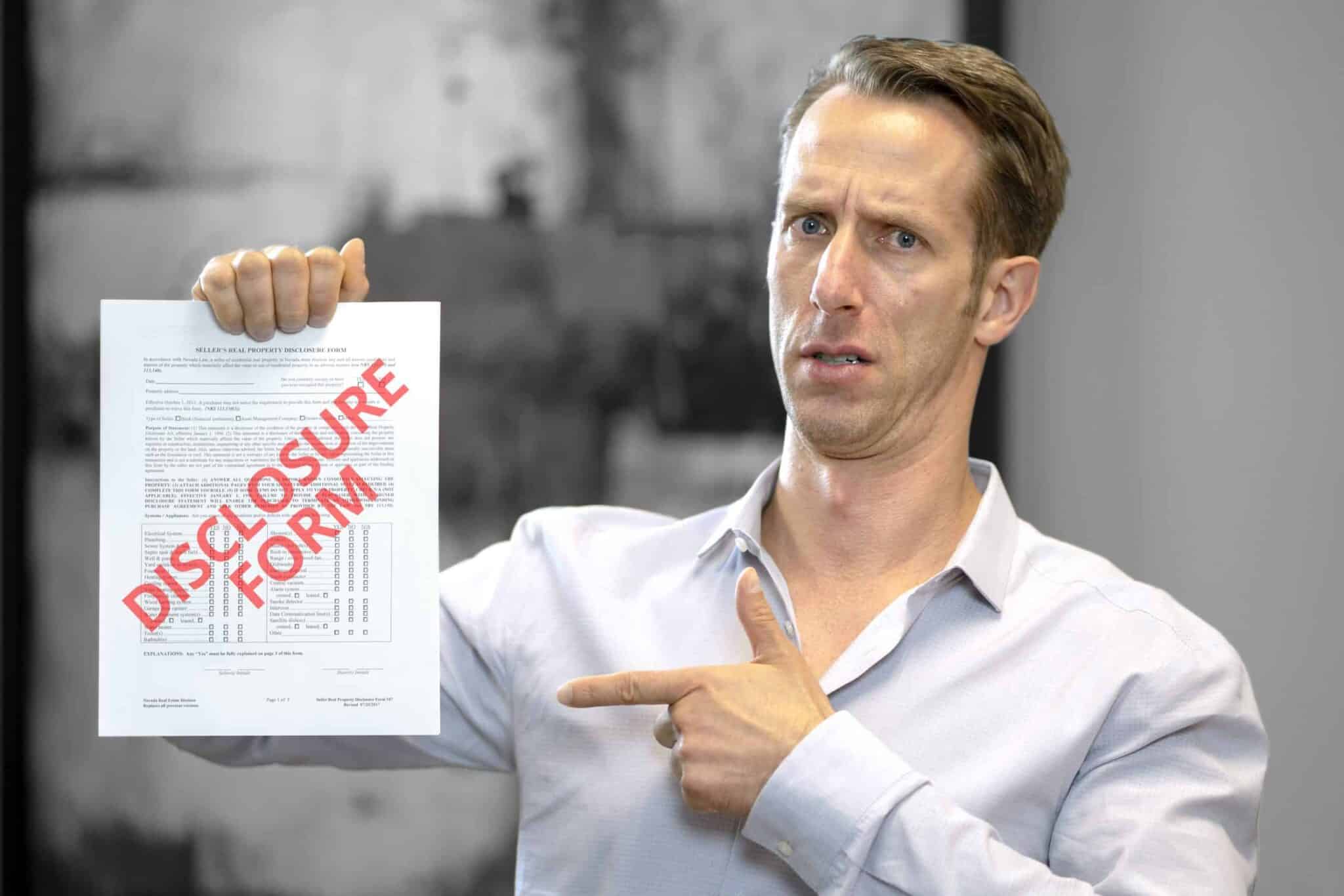Imagine this. You’ve spent time and energy getting your house staged, listed, and ready to sell. Your real estate agent has shown the home in its best light, hosted open houses, and engaged in online marketing. Eventually, the perfect buyer makes a strong offer, and you accept it. Now it’s just a matter of finishing up the paperwork and letting your agent close the deal.
One step in the closing process is filling out your property disclosure statement. These documents vary by state, but they all contain long checklists for reporting the condition of your home. These government-mandated forms give buyers an opportunity to learn more about the property they’re buying. They also give you a chance to reveal anything that might negatively affect the value of the home before the buyer’s inspection.
After you carefully fill out your disclosure statement, your buyer reads it. Everything looks good, and they’re prepared to move forward with the deal, but when the inspector stops by he finds something that you failed to disclose. You didn’t think the discolored bathroom wall that you painted years earlier was a big deal, so you didn’t add it to your disclosure statement. Maybe you even forgot about it. But the inspector’s moisture meter detects a breeding ground for mold. At this point, your buyer might demand repairs or try to re-negotiate the terms of the deal. If the defect really scares them, they might even withdraw their offer, wondering what else you failed to disclose.
While this situation is bad, it’s not the worst-case scenario. After all, you can always update your disclosure statement to reflect the new information. The defect might affect your final sales price, but at least it won’t come up as a surprise to the next buyer who makes an offer. Better yet, you can take advantage of the inspection report and repair the problem before moving forward. While you’re not usually required to disclose defects that have been repaired, certain exceptions apply. In Nevada for example, any mold or water damage—current or previous—must be disclosed. Just make sure the repairs are professionally done and that you save the receipts. Buyers will likely want to see these.
Now imagine the same scenario as before, but instead, the inspection report comes up clean. A year later, the buyer’s daughter starts having coughing fits and breaks out in hives. Around the same time, the new owner also notices discoloration seeping through the bathroom walls. Perplexed, they get a second inspection, only to find mold in the walls—and guess who has a mold allergy?
You’re minding your business, living your best life in your new home, maybe even sipping on a nice cocktail—when a stranger comes knocking at your door.
“You’ve been served,” he says, handing you a sealed envelope.
When you open it, you nearly choke on your drink. You’re shocked to discover that you’re getting sued for misrepresentation.
According to Selling Your House: Nolo’s Essential Guide,
“A buyer who is successful in such a lawsuit may be awarded substantial monetary damages. In the state of Nevada, for example, sellers can be held liable for triple the amount of damage inflicted upon the buyer, plus court costs and reasonable attorney’s fees.”
That’s right, a simple missed checkbox on your disclosure statement can cost you some serious money.
As a seller, you have a legal obligation to disclose any issues you know about. Depending on the statutes of limitation where you live, you could be held liable for what you fail to disclose, even after the sale closes. This is why it’s so important to disclose every little issue that you’re aware of. Even if it doesn’t seem like a big deal at the time, it can come back to bite you. A good rule of thumb: if you’re questioning whether or not to disclose something, you definitely should.
So how do you avoid getting sued for failure to disclose, fraud, or misrepresentation?
The answer is simple.
Just be honest.
Disclose. Disclose. Disclose.
And be thorough about it. It’s better to disclose too much than too little.
Now you’re thinking, “What if I didn’t know about the mold in the bathroom? I didn’t lie on purpose. It was just a small discoloration that I painted over.”
Unfortunately, even if you do everything right, upset buyers will still try to get compensated for defects that come up as a surprise—especially if those defects inflict pain and suffering on their family. They’ll want someone to blame, and that person will either be the home inspector, one of the agents involved in the home sale, or you.
If the buyer comes after you, just hope that your lawyer can prove you were honest on your disclosure statement and that the inspector was incompetent. Looking at this scenario from the outside, the blame clearly falls on the inspector, but things aren’t always so clear in the real world.
Even if you know you can prove your innocence, hiring a lawyer and going to court is still a major headache. But if you plan ahead, there’s a way avoid the risk of getting served in the first place. Minimize your exposure by getting your home pre-inspected before listing it for sale.





